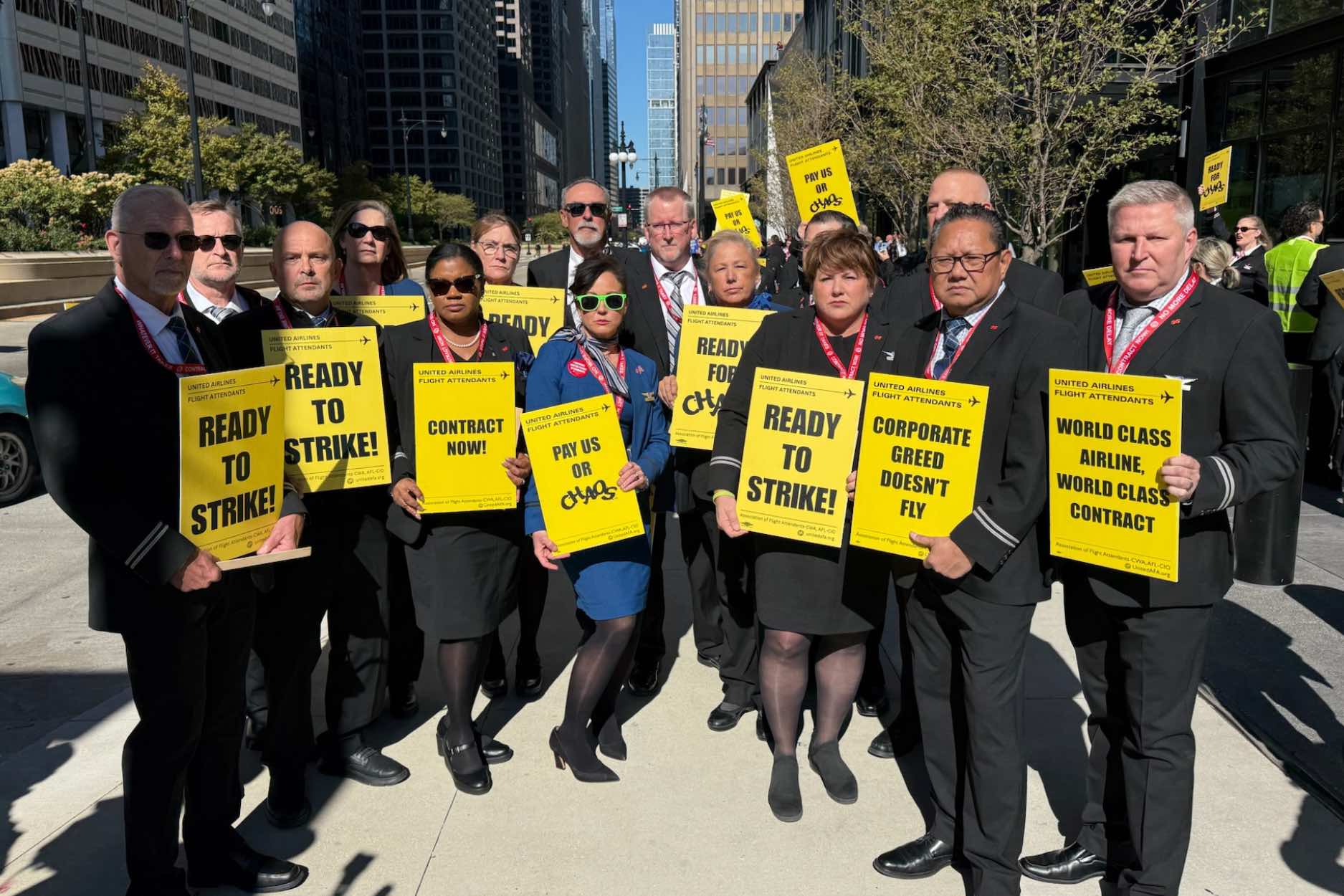United Airlines Flight Attendants Outline New Demands After Rejecting Contract

Flight attendants at United Airlines have rejected a proposed contract and are now laying out their new list of demands, revealing frustration that goes deeper than missing raises.
United Flight Attendants Reveal New List Of Demands After Overwhelmingly Rejecting Contract Deal
Late last week, the Association of Flight Attendants‑CWA (AFA-CWA) returned to the bargaining table with United after its members overwhelmingly voted down a tentative agreement in July. The union says roughly 71% voted “No” (with 92% turnout), underlining the depth of discontent with the long-awaited new collective bargaining agreement.
> Read More: United Airlines Flight Attendants Overwhelmingly Reject New Contract
What They’re Asking For
After keeping the list private for some months, PYOK flags the top eight concerns for the union as it returns to the bargaining table to hash out a final contract:
- Pay for waiting on the ground between flights
- Less tiring red-eye flying
- No more layover notifications
- More rest on longer flights
- Contract compliance guarantees
- Improvements for reserve flight attendants
- Better layover hotels
- Improvements to health care and retirement benefits
I’m not sure how to make a red eye light less tiring, but the other objectives at least make sense.
One of the more contentious items is ground duty pay. Historically for flight attendants with United, pay begins only after the aircraft door closes and the plane pushes back. The union had sought full compensation from arrival to final duty release, but says the carrier offered only “boarding pay” in the previous agreement. It’s not clear that, especially in this environment, United will offer any improvement there, at least not without making other parts of the contract less valuable.
Why This Matters And Why The Contract Was Rejected
The tentative deal—offered in May 2025—promised what United called “industry-leading” increases (up to 40% in first year value, including immediate pay raises of at least 26%). Yet many attendants say the improvements didn’t fix what they see as systemic issues: unpaid time, unpredictable schedules, rest that doesn’t feel restful, and a sense that their “deal” still left them behind compared to pilots or across the industry.
The rejection may be a bargaining tactic, but it embarrassed the union, which pushed hard for flight attendants to ratify the first agreement. Even so, the union says it is a statement by 28,000 attendants that they’ll accept nothing less than meaningful change. But as one AFA-CWA member put it in a survey reference: “The survey kept asking things like ‘Did you vote no because you should always vote no?’… They should be more concerned with what they did wrong instead of blaming us.”
With no new agreement yet in place, United and its cabin crew group will meet again in December, the union says. Mediation continues under federal oversight, and the stakes are high. It is highly unlikely that flight attendants will be granted the right by federal mediators to strike (even during the Biden administration, this was not allowed).
At least as of yet, I have not seen flight attendants take out their anger over a lack of a new contract on passengers: we are all thankful for that.
CONCLUSION
United’s flight attendants are still in search of a deal and their eight-point demand sheet reveals that the contract gap goes beyond dollars and cents. It goes to time spent unpaid, night after night, hotel quality, rest quality, and at a fundamental level (as one flight attendant told me), respect. If United wants to keep its promised premium experience and avoid unnecessary turbulence, it needs to strike a bargain that the union can sell to flight attendants so this long-drawn-out chapter can be closed.
image: AFA